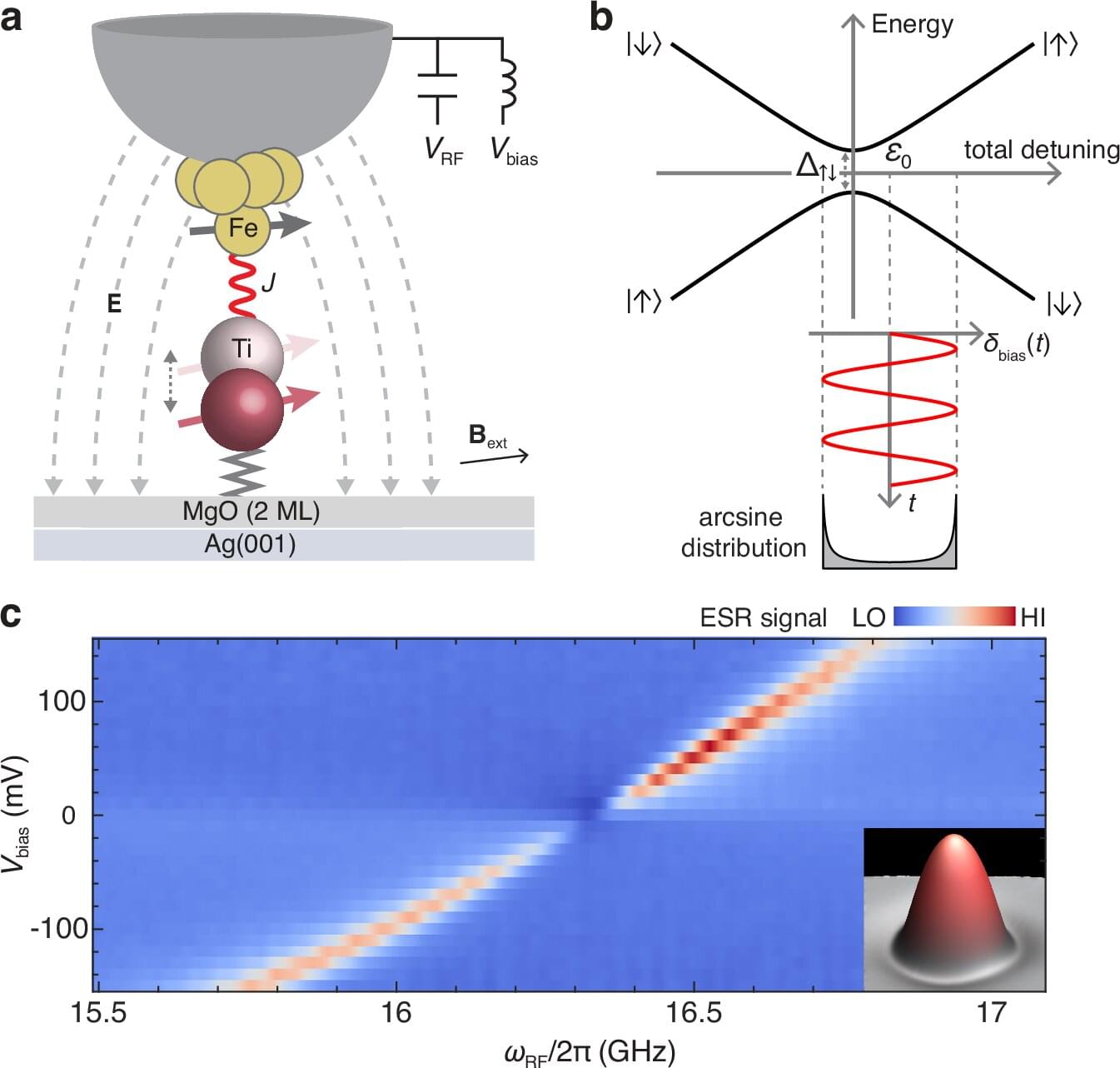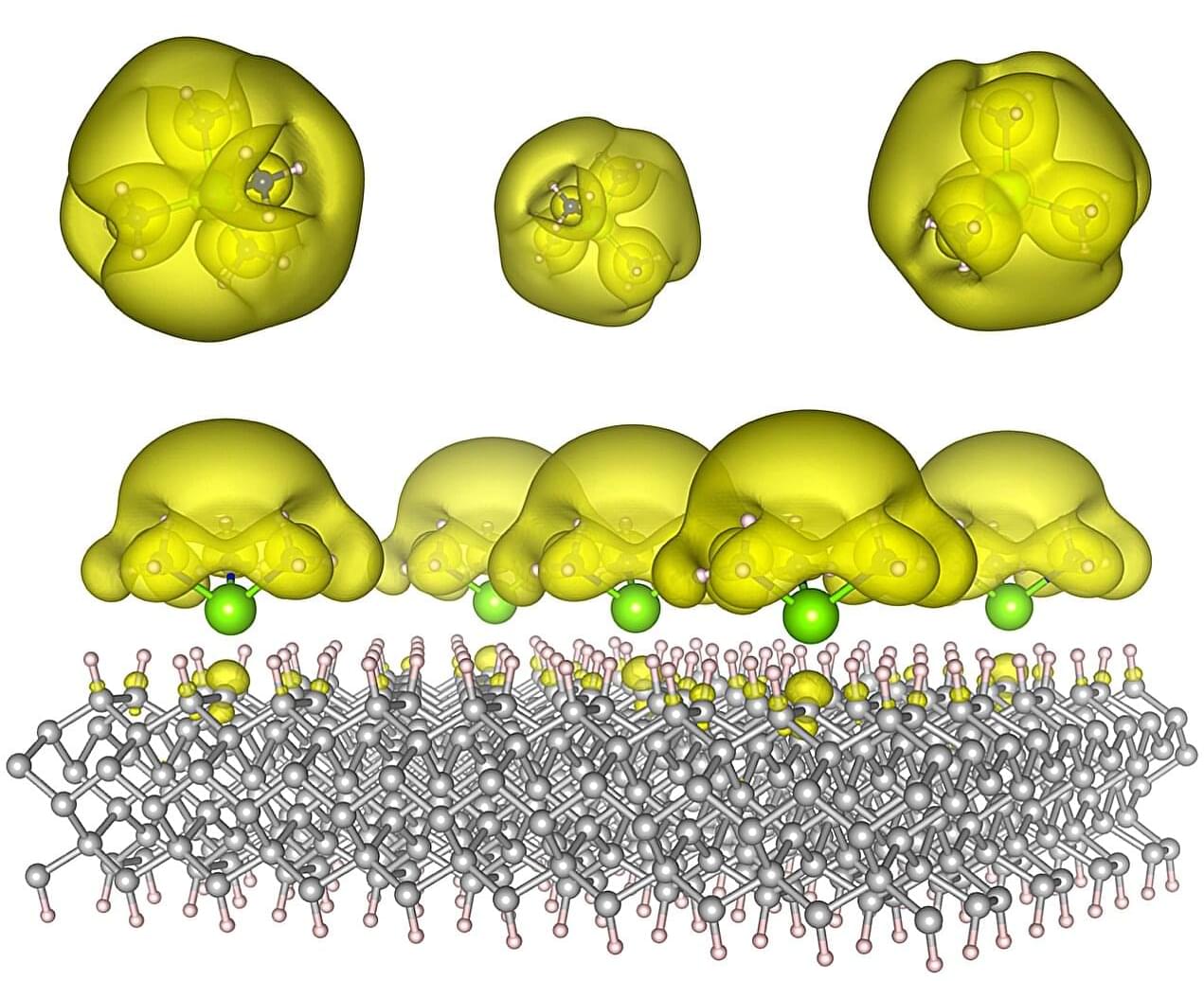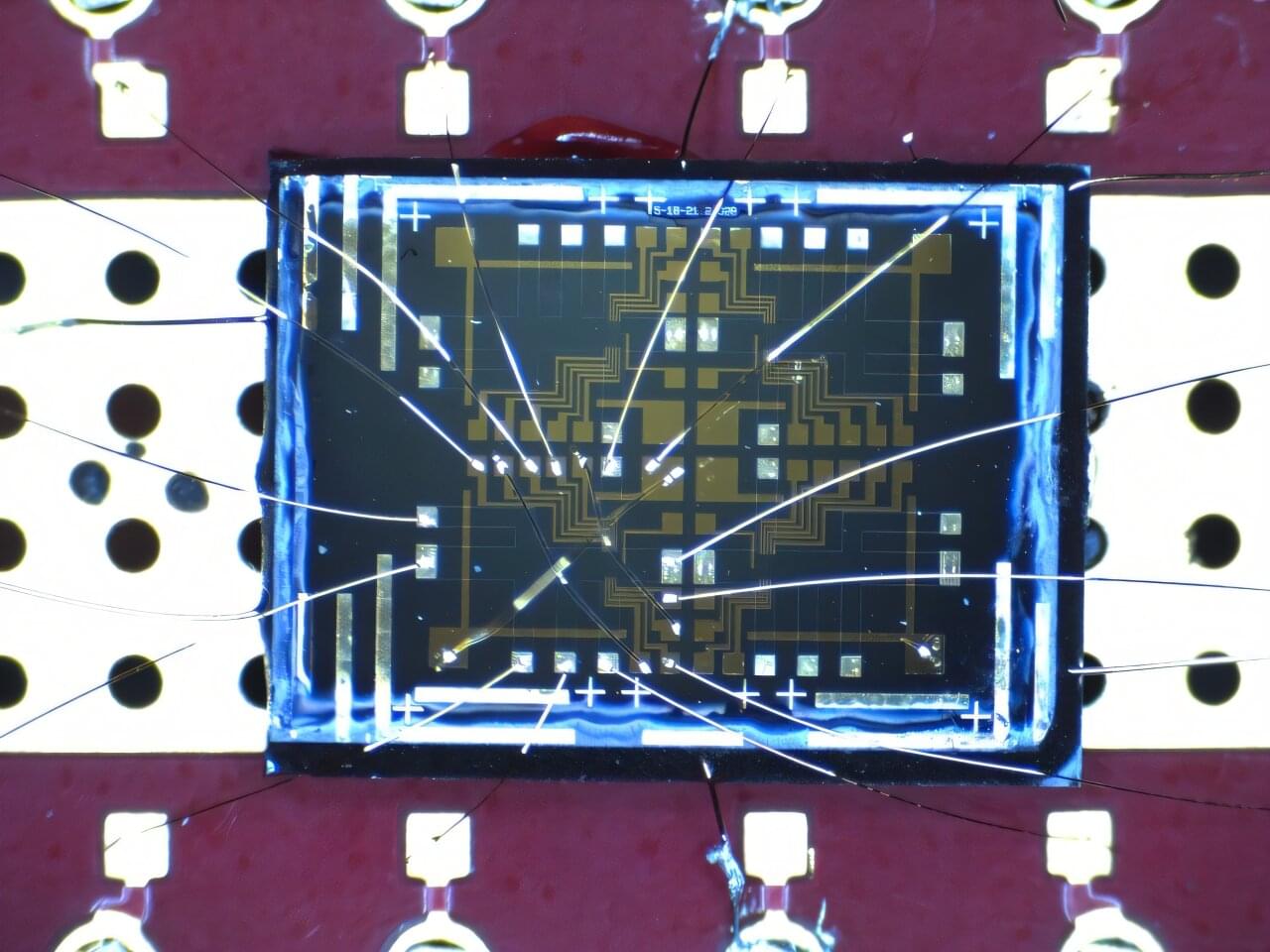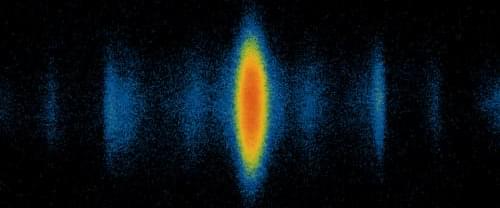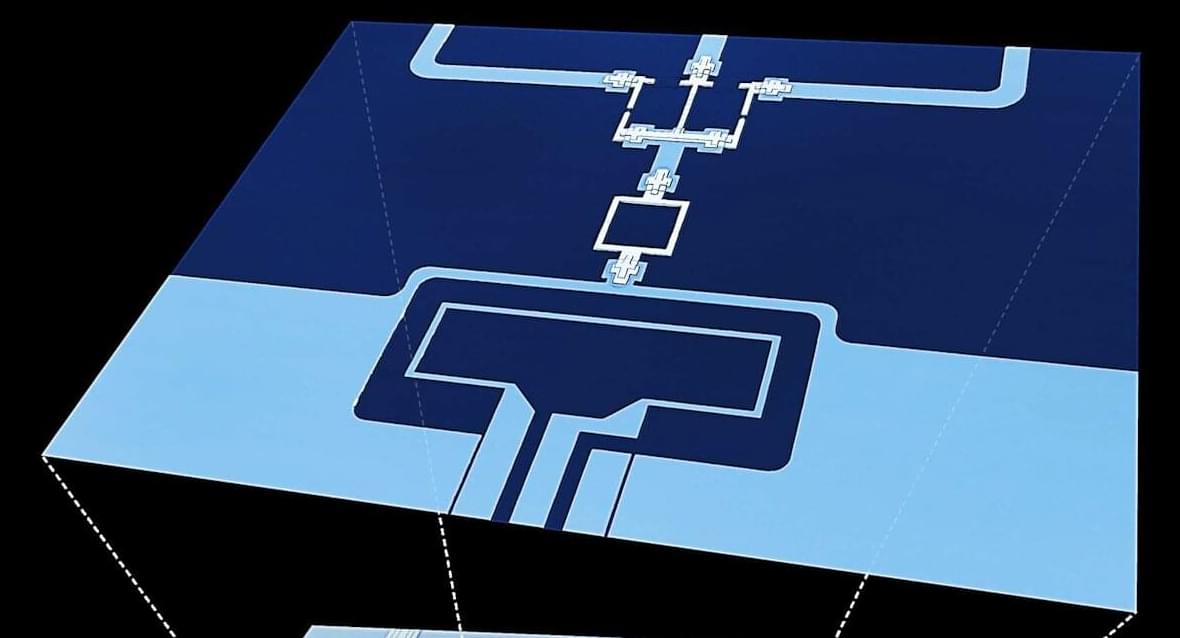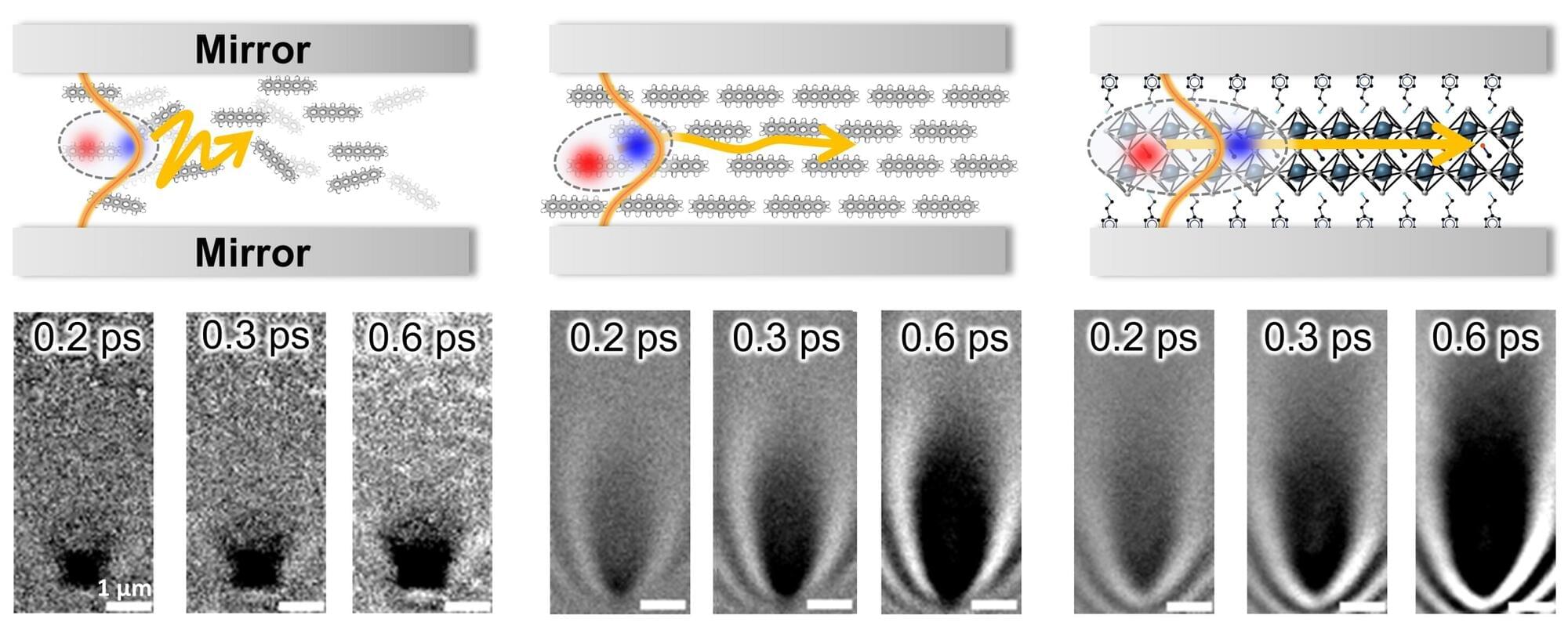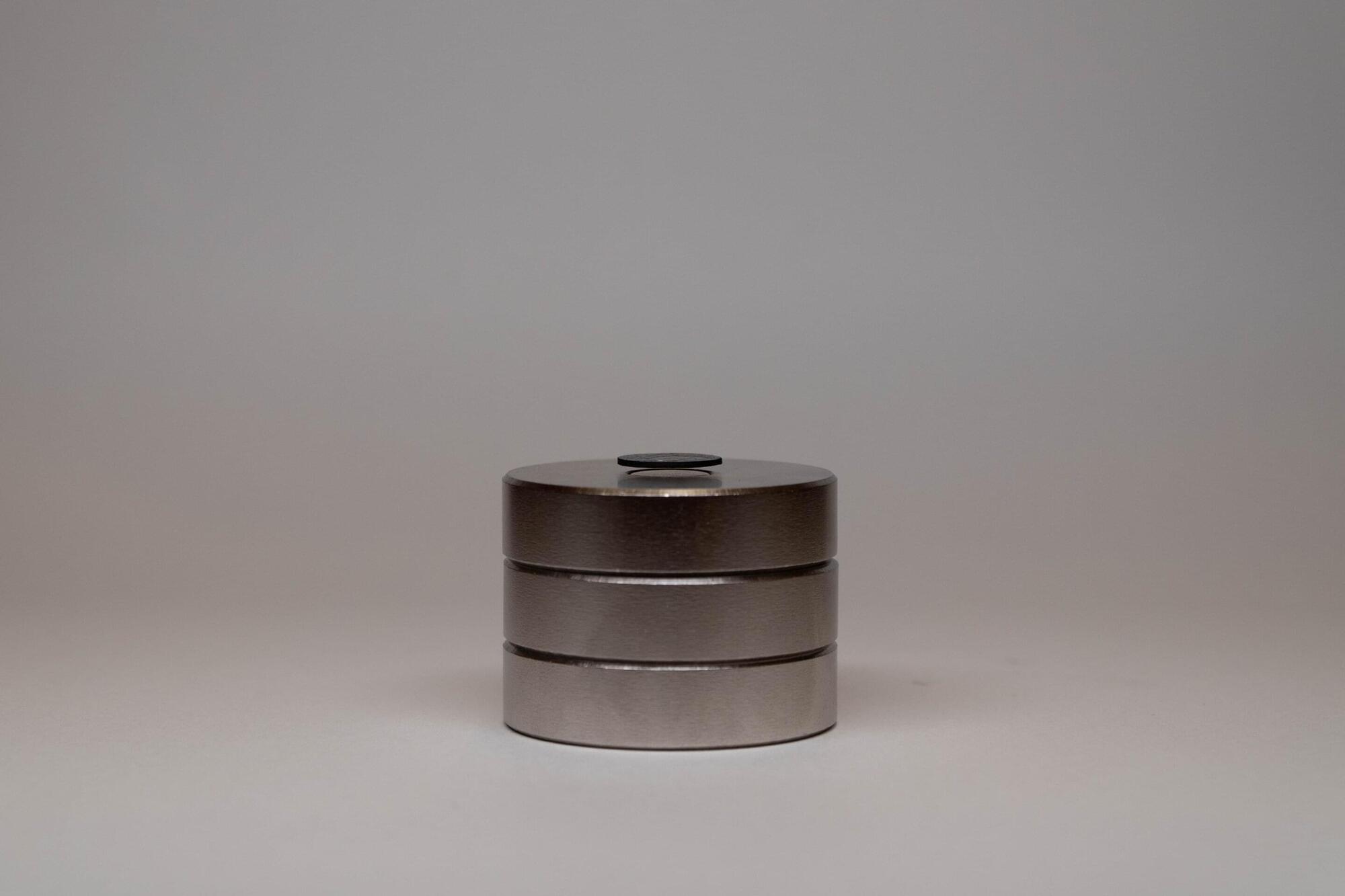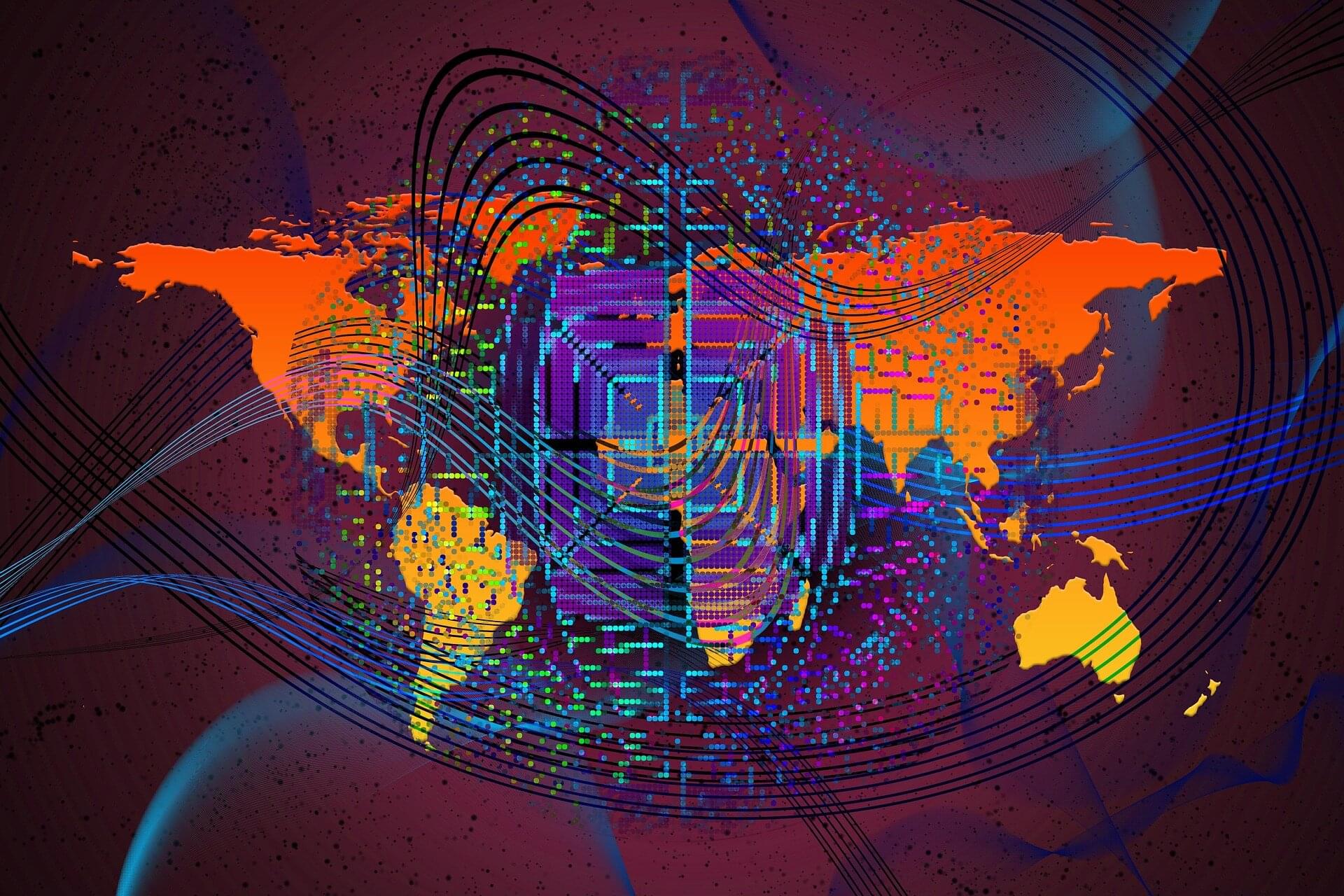In a study published in Nature Communications, a research team demonstrates the all-electrical control of quantum interference in individual atomic spins on a surface.
Quantum interference arises when a system exists in a superposition of states, with relative phases producing constructive or destructive interference. An example is Landau-Zener-Stückelberg-Majorana (LZSM) interference, which arises when a quantum two-level system is repeatedly driven through an anticrossing in the energy-level diagram, and undergoes multiple nonadiabatic transitions.
This mechanism is a powerful tool for fast and reliable quantum control, but it remains a significant challenge to achieve tunable LZSM interference in an atomic-scale quantum architecture where multiple spins can be precisely assembled and controllably coupled on demand.
